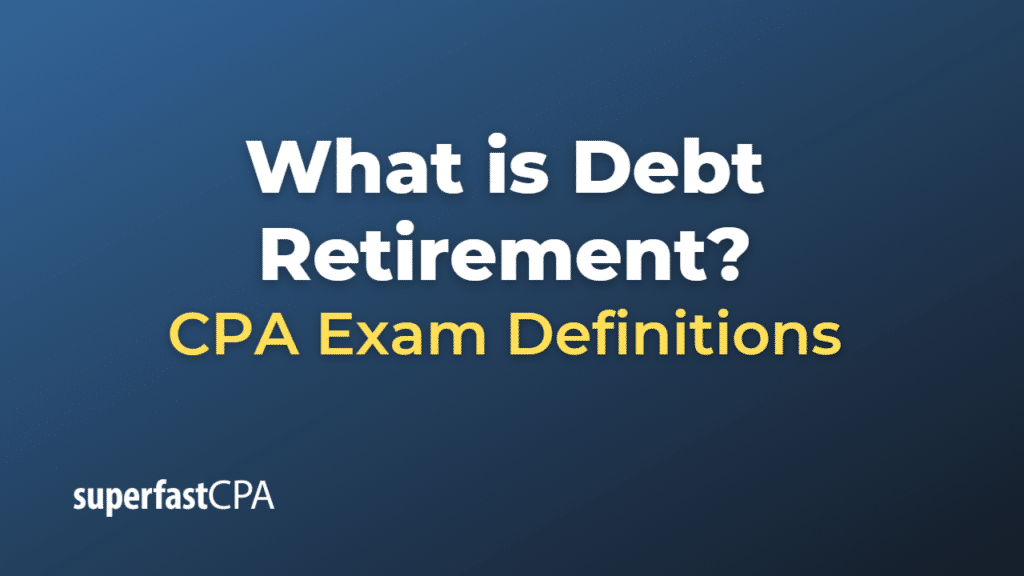Debt Retirement
Debt retirement refers to the act of a company repaying its debts as they become due or buying back its own debt securities from the open market. When a company retires its debt, it’s essentially eliminating it from its balance sheet by paying off the principal and any remaining interest.
Debt retirement is often seen as a positive sign as it reduces a company’s leverage and financial risk. It can enhance the company’s financial health and stability, and potentially increase the company’s attractiveness to investors and its creditworthiness to lenders.
However, the decision to retire debt must be balanced against other uses of funds. If a company has high-interest debt, retiring it can be a very effective use of funds, as it reduces future interest expenses. On the other hand, if a company’s debt has a low interest rate, it might be more beneficial to use available funds for investing in growth opportunities, share repurchases, or dividend payments, depending on the company’s financial situation and strategic goals.
Also note that the term “debt retirement” can be used when a government entity, such as a city or a country, repays its debt.
Example of Debt Retirement
Imagine we have a company called “Green Energy Corp.” that took out a 5-year loan for $5 million at a 6% annual interest rate to finance the development of a new renewable energy project. Now, let’s say the project has been successful and generated significant profits for the company.
Seeing an opportunity to reduce its financial risk and interest expenses, Green Energy Corp. decides to retire its debt early. It has enough cash on hand to fully repay the remaining loan principal, as well as any accrued interest.
By repaying the loan, Green Energy Corp. effectively retires its debt. This action removes the debt from its balance sheet, reduces its future interest expense, and may enhance its financial stability. It could potentially improve the company’s credit rating, lower its cost of capital, and make it more attractive to investors.
However, Green Energy Corp. would also have evaluated other potential uses of its cash before making the decision to retire debt. For example, it might have considered whether investing in new projects, buying back shares, or paying dividends might provide a higher return to its shareholders. The decision would be based on a variety of factors, including the interest rate on the debt, the risk and potential return of other investments, the company’s financial strategy, and the preferences of its shareholders.













